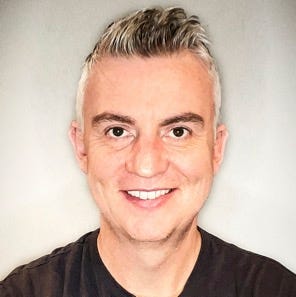The People Experience: Podcast Episode 4 with Erin Wynn

“It’s inevitable that when you put the right people, in the right places, doing the right things you can weather any storm and come out brighter on the other side.”
Erin Wynn, Company Customer and People Officer at Welocalize chats with host Louise Law on episode #4 of the Welocalize Presents Podcast. Erin shares her thoughts about the ‘three-legged stool’ of customers, employees, and partners that form the People Experience. They also talk about the challenging global economic climate currently faced by everyone and the impact that could have on global brands and the language industry in the coming year.
TRANSCRIPT
Louise Law:
Well, hello and welcome to the Welocalize Podcast where we talk about all things language, multilingual localization, AI, NLP and loads more – helped along by a wide variety of guests. I’m Louise Law, your Welocalize host and in this podcast episode, I’m joined by Erin Wynn, our Company People and Customer Officer here at Welocalize. Hi, Erin and welcome!
Erin Wynn:
Thanks, Louise. It’s nice to see you.
Louise Law:
Yeah, it’s really great. It’s quite great for you to join us. So Erin, in today’s episode we’re going to talk about something that’s close to your heart – the people experience. But before we get into the into the meat of the podcast, let’s give the listeners insight into your background. You’ve been with the language industry for over 20 years and with Welocalize since 2008, having joined through an acquisition. Could you tell us a little bit about your journey through the language industry?
Erin Wynn:
Sure! I know when I joined and when I actually was a customer of Transware at the time, and then went to work for Transware and then acquired by Welocalize. This industry was always out in the ether for me. I didn’t really understand what it was. Like how important language and globalization, localization and internationalization was and is to all of us, I think we underestimate the importance of what we do now, and I certainly did back then a long, long time ago. I was in an e-learning company at the time and as I think about it often is there’s no better place for what we do than in that knowledge transfer in that e-learning space. So, at that point in time, you know, I just have grown to have such a great appreciation for what we do, not even around languages only, but around the services and and the partnerships that we create with our customers and our partners and our employees. I hope that’s what we get to talk about today. But that’s really, you know, where I’ve come from. I was an individual sales contributor at Transware, I had a really nice book of business and some customers that are still our customers today, and some really fun people that I still work with today. 20 years later, 25 years later. Yes, I’m dating myself. That’s a really neat thing about this industry too is that it’s intimate. But it’s also quite large now and where we’ve all come is pretty impressive.
Louise Law:
Yeah, I mean, globalization just is all around us, isn’t it? Everything we do, whether it’s in our work, lives or family personal lives, you can see aspects of localization from when you’re ordering a meal in a restaurant in a different country, it is all around us. You’re right in that fortunately, the importance of that cultural adaptation and speaking the right language has become very, very important to many global brands. Now, hasn’t it?
Erin Wynn:
It has and it’s a human experience, I think we’re one of the – similar to maybe healthcare – where you know we still need humans to do the work, there’s not. I don’t believe, and I don’t think we believe here there will ever be a world where a machine can do the globalization, the localization. It can be a component of it. But it will always need a human, it will always need a person – somewhere in the process, somewhere in the experience – it’s going to need a human. I think that’s something that’s also very neat about our industry and about what we do is that it’s humans, and that’s my passion – people. And all different sorts of people coming together to do all sorts of really cool, fun things.
Louise Law:
Leading a global team and you’re driving the people and customers strategy, it’s a big remit. But developing teams and people is obviously somethin you feel very, very passionate about, which is lovely. And you’ve spoken at recent events about the people experience – and that’s the people experience both that Welocalize and also within the industry. So what does that actually mean to you? How do you define the people experience?
Erin Wynn:
We’re super fortunate in the passionate people we have in our people success team and all around the globe helping us to drive the people experience here internally and then we also know that we need all of our external people as well, meaning our partners, our talent, our linguists, our supporting organizations, and again they’re it’s a 3-legged stool. I guess nobody is most important, but all of that then leads to our customers. I always say “well, you can’t have a people experience internally without customers,” but customers can’t have a flawless experience without. Our internal employees and then we can’t have any of it without our partners and our linguists and all the supporting cast so.
Louise Law:
Yeah, absolutely.
Erin Wynn:
It really, is a 3-legged stool and no one is more important than the other. And I think that is a balance that is hard to strike every day to get all three of them to function together and actually, more than functioning – thriving. And that’s what we try to do here every single day.
Louise Law:
You’re right, it it is a challenge and I think it’s a good way to describe as a 3-legged stool, and then things never stay the same. We recently ran a poll on LinkedIn asking people how and where they work. So the question was “What best describes how you work?” And it must be a popular topic because we had over 1,200 responses and over 50% said they worked from home all the time now, and that’s remarkable beause that would not have been…We wouldn’t have got that response two or three years ago, would we Erin? So, and you know, I don’t think that trend is specific to the localization industry, that’s – that’s across all industries. Remote working is here to stay. We have customers. We have staff. We have partners. We have linguists based all over the world. How do you work to manage, unite, and motivate these remote and diverse audiences? How do you go about that? Where do you start?
Erin Wynn:
That’s a really good question. Where do you start? And you start at a different spot for everybody every day, depending on each person’s individual unique situation, and that’s literally what you have. And you’re right, it’s not unique to us. It is definitely an evolution of where some of us who have worked from home their entire careers. I have been in my Home Office for 25 years. As a sales person, that’s not uncommon for us to have worked remotely and then coming into leadership, just more on the road pre-COVID, pre pandemic, on planes a lot. Then post pandemic where everyone is now in the same situation and video conferencing has become the new norm where you’re literally in somebody else’s home every day.
Louise Law:
That’s right.
Erin Wynn:
It’s their Home Office, but you’re in their home. We know more about each other than we ever would have learned or known prior, and I think that’s good. I think that has been really good for connection. But still the people being able to get together, you and I just got together recently after many years because of the pandemic – I think close to three years, we haven’t seen each other. We see each other every day like this.
Louise Law:
Yeah! Yes, in person.
Erin Wynn:
There’s just something about that ability to sit down, and I think that’s what we all appreciated about being in an office. Many times I was jealous of not being able to go to an office every day because I wasn’t in a locale. Now we’re trying to balance how we get that connection here. Balance it with being able to have offices where we do have cohorts of folks who do want to go into an office. We as an organization, as you know, don’t mandate office at all anymore. We’re a ‘however you wanna work, you can work.’
Louise Law:
Right?
Erin Wynn:
We will support any kind of temporary office space. I think we just have to evaluate what’s happening every day. We have to listen. We do pulse survey our employee base, as you know, frequently now on how folks are feeling.
Louise Law:
Yeah, yeah.
Erin Wynn:
How they’re feeling the engagement is going, and being able to react and respond as quickly as possible to a broad group. While then we put in place, we’re going on a year and a half now, a career framework, which going into the pandemic, as you know wehad no real foundation for you or I or anyone in the organization to really be able to lay out their career and for us to be able to listen and give good direction ourselves as good leaders, being able to support your career aspirations, and be very transparent about where and how to get there. nd that may involve some lateral moves. It’s not always up, you know, sometimes we have to move laterally. I think in the past, many of us would have looked at that as ‘well, I don’t want to move laterally. What is that gonna do?’
But I think that’s important and many many big organizations out there do that where, you know, you have to move laterally a number of times before you can move up, maybe switching disciplines, maybe switching functions. so it’s been super exciting to put that in place and see that come to fruition. Yeah, which has been a big, big game changer for us.
Louise Law:
The increase in remote working has created opportunities for people, it’s not, uh, I don’t see it as a restrictive environment. It’s more like you talk to more people. There are no physical boundaries when it comes to who you network and talk to. It’s kind of opened up a lot of opportunities for a lot. of people, hasn’t it?
Erin Wynn:
Absolutely, absolutely. And you know, we as an organization have forever looked at adversity as an opportunity versus – and you know that, you’ve been here a little while as well, Louise – but you know, we really try to embrace that: That adversity while on the face of it, is adverse, but its an opportunity for us as an organization to really reflect on….Okay, we can look at this as a negative. We can look at it as ‘Oh my gosh, we have to take some, you know, really serious potentially what would be viewed as negative steps to to face that adversity.’ However, we don’t. We looked at it as “What are our opportunities? How can we come together to solve some of this without having to take some of the actions that some companies just are forced to take?”
And I’m super proud of that, and I know Smith is super proud of that – is trying again, to make sure that everybody can see the opportunity in front of them no matter what the environments are that we’re all living in. And as you know, we’re in some pretty incredible economic times. We’ve got some pretty serious headwinds coming our way. But we feel more confident than ever that, you know, the work that we’ve been doing around the people, because we always say it, too: With the right people in the right places, doing the right things, it’s inevitable that we’ll weather any storm and that we can not only weather the storm but come out brighter on the other side.
Louise Law:
Let’s turn to some of the challenges that we are all faced with at the moment. You know, we’ve got rising costs. We’ve got inflation all over the world, you know, not just in specific geographies, some political unrest in places and the forecasts aren’t good. There are forecasts of a global recession. It’s a tough time or it’s, you know, they’re telling us it’s going to be a a tough time. How do you think this is gonna affect maybe how some global brands see their growth strategy? Do you think there may be a slowdown? And how do you think this will impact the language industry? What are your thoughts about it?
Erin Wynn:
Yeah, the language industry is…. seems to be, in past situations like this, a very resilient industry-
Louise Law:
Great, yeah.
Erin Wynn:
-in that, for us with our customers, because we’re all facing the same thing, I think it brings us closer. Again, it gives us opportunity to really get in and strategize on: Where our priorities? Where do you need to be globally? What can we assist you with? How can we work together?
I already see it happening and have seen it happening all year this year where yes, there’s consolidation happening everywhere, but we are at the table having those conversations – again both internally and externally, with our partners, with our customers, with our employees. So, while I do think that it will be a challenging time, I also think that as I said, we are resilient. We’re resilient as an industry. We always need a global presence. Every company needs that global presence, every company-it’s required, so it’s about getting together figuring out how we can come together to weather the storm and that it’s happening every day and I feel confident that our teams, our customers teams will weather it.
Louise Law:
We are moving to that time of the year where we’re moving into 2023. Do you think we are looking at a new era? I know we’ve just talked a little bit about the global recession. Do you think it’s a new era for Welocalize and everyone or be it a tough era?
Erin Wynn:
Right now, our big change is coming in our brand experience, our people experience, our customer experience, our partner experience – all of those together. I mean, we talk about being one. Internally at Welocalize, we talk about one Welocalize, but externally we really looked at it and we recently were at LocWorld in Silicon Valley and really kind of testing the theory on. We are one kind of back to that 3-legged stool of ‘we are one’ and being bold, we’re one and being curious. All of us are curious about some experience and most importantly being authentic. I think that’s one thing too, that we are really passionate about here, is being transparent and authentic. I hope that you know that is the one thing that our people, customers, and partners can take away is that when we get together and we have conversations like this or we have conversations around a situation that a customer is trying to solve or… that we can be those things that we can be bold, we can be curious, but most importantly, we can be authentic. That’s our future. That’s one of the things that you know we’re really, really leaning into is being one, and I think that’s most important as we face down some of these things that are happening around the world. And we have to be one and we have to come together. So, I hope that that’s where our future is, Louise, because we’re sure living into that.
Louise Law:
It’s certainly good to talk to you, and it’s good to kind of have that positive moving forward. Makes it a great people experience, doesn’t it?
Erin Wynn:
It sure does.
Louise Law:
Will you be doing anything nice over the holidays?
Erin Wynn:
Yeah, it’s all family all day. All of us are coming together here at our house, so there will be about….
Louise Law:
Would it be a great people experience?
Erin Wynn:
It’ll be a great people experience. You know how the holidays are, and I’m pretty sure we’re going to be bold, curious, and authentic around here, but yeah. It’ll be, it’ll be great.
Louise Law:
Well that’s great. Well, thank you so much for joining the podcast today. You’ve been a truly great guest. Maybe look forward to speaking again on the on another episode, but thanks again for your time.
Erin Wynn:
Sounds great. Thanks so much, Louise.
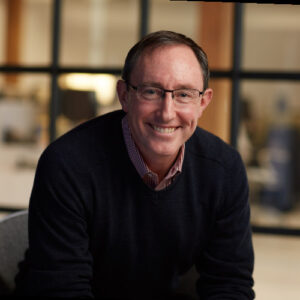
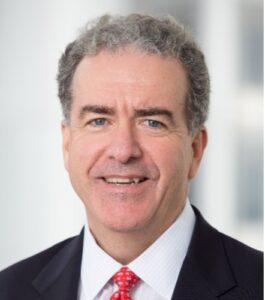 Dan O’Brien
Dan O’Brien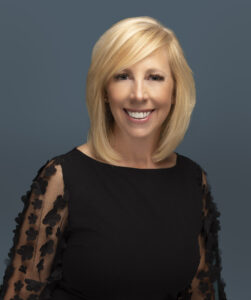 Erin Wynn
Erin Wynn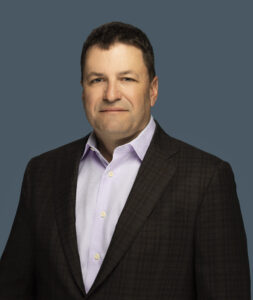 Chris Grebisz
Chris Grebisz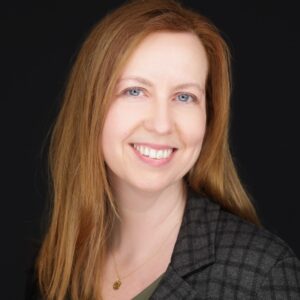 Christy Conrad
Christy Conrad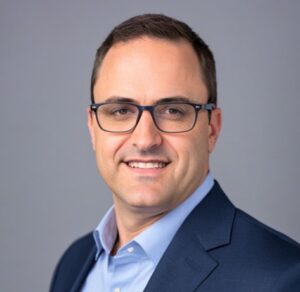 Matt Grebisz
Matt Grebisz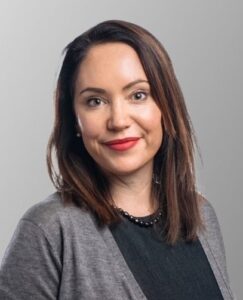 Siobhan Hanna
Siobhan Hanna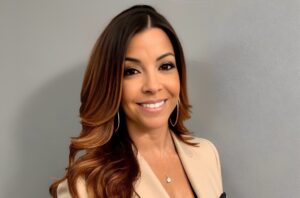 Kimberly Olson
Kimberly Olson Nicole Sheehan
Nicole Sheehan